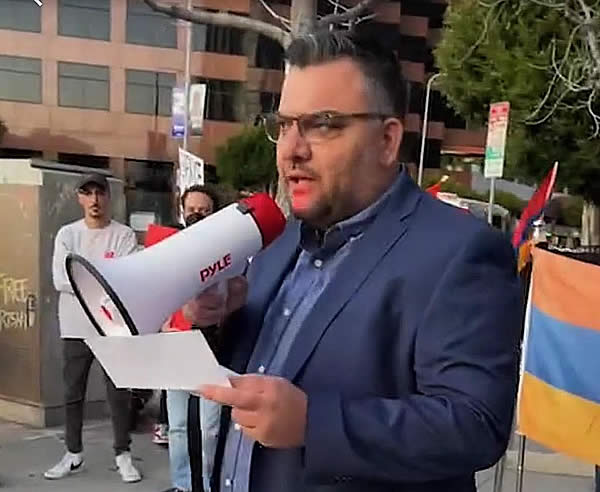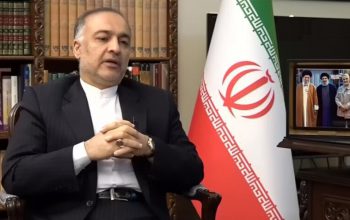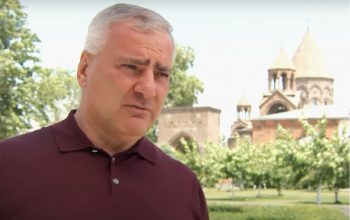By Levon Baronian
The recent leaks of the unresolved provisions in the peace treaty negotiations between Armenia and Azerbaijan should be a wake-up call for every Armenian citizen. The release of sensitive details by Azerbaijan, whether orchestrated by its authorities or intentionally leaked by their allied analysts, paints a stark picture: Armenia’s leadership under Nikol Pashinyan is deliberately undermining Armenia’s national interests and moving the country in a dangerously wrong direction, serving the interests of foreign powers.
Azerbaijani analyst Farid Shafiyev, whose analysis center is funded by the Aliyev administration, recently revealed that critical points of the peace agreement remain unsettled. These include the amendment of Armenia’s constitution, the withdrawal of European observers from the Armenia-Azerbaijan border, and the cessation of legal disputes in international bodies. The Armenian government, led by Nikol Pashinyan, has remained silent on these revelations, refusing to confirm or deny their authenticity. Instead, Armenian Deputy Foreign Minister Vahan Kostanyan vaguely stated that negotiations are ongoing, brushing off any detailed discussion about these crucial matters.
The ambiguity and inaction from Yerevan are a reflection of Pashinyan’s inept leadership. The Armenian side’s lack of clarity in its own position only adds weight to Azerbaijan’s demands and weakens Armenia’s negotiating stance. Artur Khachatryan, a member of the ARF and of the “Hayastan” faction in the National Assembly, pointed out the clear objective behind Azerbaijan’s leaked demands. Azerbaijan, he argues, wants the withdrawal of observers from the border because it would rather operate in secrecy, without third parties reporting provocations. This demand fits Azerbaijan’s broader strategy of gaining unilateral power over Armenia without any checks.
These developments further underscore the imbalance in the current negotiations. Azerbaijan is not interested in transparency, mediation, or balance. It wants full control, and it knows that under the current Armenian administration, it can advance toward that goal without much resistance. As Khachatryan aptly put it, in a situation where one side is weak and the other is strong, a lack of mediation only empowers the stronger party. Nikol Pashinyan’s inability to secure Armenian sovereignty and ensure strong international mediation is playing directly into Azerbaijan’s hands.
The revelations about the treaty discussions also show that Azerbaijan seeks to change Armenia’s constitution. By doing so, Baku aims to strip Armenia of its ability to pursue territorial claims or protect its national interests in the long term. This is not just an attack on sovereignty—it is a demand for Armenia to undermine its very foundation, a tactic designed to weaken Armenia’s nation from within. Under Pashinyan’s leadership, Armenia has not effectively countered these aggressive demands. Instead, Pashinyan’s administration has resorted to vague promises, failing to outline a coherent strategy to protect Armenia’s constitutional integrity.
Another critical point in the leaked demands is the removal of legal and diplomatic disputes from international bodies. This suggests that Azerbaijan wants Armenia to forfeit any future claims against it, thus eliminating avenues for redress or justice in international courts. Vahan Kostanyan’s tepid response, suggesting that these issues could only be resolved after a peace agreement is signed, is concerning. Armenia cannot afford to give up its rights to pursue justice at international forums, especially considering Azerbaijan’s record of breaching agreements and committing human rights violations.
Narek Minasyan, a political analyst, aptly noted that Azerbaijan’s leaks are deliberate attempts to complicate negotiations and apply public pressure on Armenia. The idea is to reduce the scope for compromise by forcing Yerevan into a defensive position, making it more challenging to resist Baku’s demands. Unfortunately, Pashinyan’s administration seems to be playing directly into Azerbaijan’s hands, unable or unwilling to push back effectively.
The silence from the Armenian government in response to these leaks is not merely diplomatic restraint—it is a sign of weakness. It is a sign that Pashinyan’s government is out of its depth, lacking the political will, the strategic vision, or the courage to protect Armenia’s sovereignty and national dignity. For a government that claims to be working towards a stable and peaceful future, Pashinyan’s leadership has deliberately left Armenia vulnerable and exposed to external threats, serving foreign interests rather than protecting the nation.
This failure is not just about a leaked document or diplomatic negotiations. It is about the broader trajectory that Pashinyan is taking Armenia on—a path where Armenia’s sovereignty is bartered away, where Armenia’s borders are left unguarded, and where Armenia’s future is at the mercy of Azerbaijan’s ambitions. By remaining in power, Pashinyan risks making irreversible decisions that will harm Armenia’s national security and compromise its territorial integrity.
The Armenian people must rise up and remove Pashinyan from power before more damage is done. The Armenian people deserve a leader who will stand firm in defense of Armenia’s sovereignty, who will not bow to Azerbaijani pressure, and who will ensure that any peace agreement respects Armenia’s dignity and security. Armenia is at a crossroads—and for the sake of Armenia’s future, the Armenian people cannot afford to continue down the path that Pashinyan has set.




